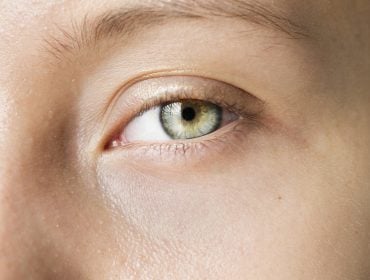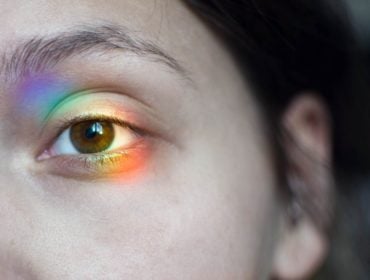STD Risks: Sex, Drugs, & Alcohol
Drugs and alcohol have been around for a long time. Sex has been keeping humans from going extinct since the beginning of humanity. If they’ve coexisted for thousands of years, why is the combination of drugs and alcohol with sex such a big problem these days? What makes this mix so dangerous and what can be done to reduce the health hazards that come with it?
Babylonians worshiped a wine goddess in 2,700 B.C., Greeks made hooch out of fermented honey and water, and ancient Chinese pottery has been discovered showing traces of alcohol from as far back as 7,000 B.C. Cocaine and heroin, in their current forms, has been around since the 1860s and, like its early 20th century partner in crime heroin, was once a legal substance used to treat various medical conditions like depression and sore throats, respectively. Philosophers, scientists, artists, authors, and some of the greatest minds to ever lived were fond of drugs and drinks, but the proliferation of STD infections caused by risky behavior influenced by drug or alcohol use is a thoroughly modern problem.
The explosion of STDs and HIV in the past 30 years has created an environment where precautions are necessary to prevent the spread of diseases among sexual partners. Some STDs can’t be prevented by condoms, meaning there are additional steps necessary to avoid infection. Substance abuse is the leading risk factor in STD and HIV transmission, especially among men who have sex with men. Alcohol use is related to an increased chance of using intravenous drugs, which itself is a high-risk behavior for STD transmission.
Alcohol slows down the brain and impairs judgment which leads to a higher likelihood of participating in risky behaviors, such as unprotected sex or sex with multiple partners. A higher likelihood of risky sexual behavior equates to a higher likelihood of contracting or spreading an STD. A study published by the US National Library of Medicine website “The Relationship between Recent Alcohol Use and Sexual Behaviors” concluded that out of 671 STD clinic patients surveyed, 30% of women reported binge drinking. Among those women, receptive anal sex at more than twice the rate of non-binge drinkers and at three times the rate of sober women. Binge drinking women reported having multiple sexual partners at twice the rate and suffered from gonorrhea at five times the rate of their sober counterparts.
Alcohol also lowers your immune system, making the body less effective at fighting off infections, including STDs. By impairing the body’s immune response, alcohol can increase an individual’s susceptibility to infections. it can also damage the body’s physical barriers, such as the skin and mucous membranes, potentially making it easier for pathogens, including those causing STDs, to enter the body especially STDs that are spread through skin on skin contact and not prevented with condom use.
People who abuse alcohol are more likely to contract HIV than non-drinkers. Whether alcohol is used to alleviate social anxiety, lower inhibitions about certain sexual activities, or enhance sexual arousal, it can be a powerful aggravating factor leading to risky sexual behavior. Alcohol also negatively affects the treatment of HIV patients, making it easier to come down with infections that define the progression from HIV to AIDS. Because alcohol can cause brain damage, the likelihood of additional AIDS-related brain damage is higher among people who drink alcohol while living with AIDS.

While the spread of STDs is a side effect of alcohol use, in the case of intravenous drug use, it is a direct effect. Intravenous drug use is at the top of the list of STD risk factors because sharing needles makes drug users susceptible to blood-borne infections, especially HIV and hepatitis C. In addition to spreading infection through needle use, drugs also impair judgment in the same manner as alcohol. People who injected drugs made up 8 percent of all new HIV infections in 2010, according to the Centers for Disease Control and Prevention (CDC).
The likelihood of unprotected sex, sex with multiple partners, and receptive anal sex goes up with recreational drug use at similar rates as alcohol. Drug addiction can also lead to situations where sex is traded for drugs, increasing the risk of exposure to HIV and other STDs. The STD-related side effects of drug use can be grim. Drugs can suppress the immune system, which could be life-threatening for people living with HIV/AIDS or hepatitis. Drugs addiction often leads to malnutrition, which can be a very serious condition for HIV-positive individuals. Recreational drugs can interact with medications and have adverse effects or lead to missed doses of necessary medicine. In some cases, drug use can lead to immunity to HIV medication.
Cocaine, opiods such as heroin and Oxycotin, amphetamines (speed) and methamphetamine (crystal meth), ketamine, the date rape drug gamma-Hydroxybutyric acid (GHB), amyl nitrate (poppers), and MDMA or ecstacy are known as “sex drugs” because the euphoric side effects are said to also enhance sexual arousal, function, and pleasure. Recreational drug users have terms, such as “Party and play” (PnP), to use as code for engaging in sexual activity while using drugs, typically methamphetamine. In the gay community, “party and play” sessions are typically arranged on Craigslist or dating sites, increasing the likelihood of sharing STDs with strangers or multiple partners. Methamphetamine has such a strong correlation with risky sexual behavior that task forces have been established all over the country to reduce use of the drug, especially in the gay community. Statistically, men who engage in “PnP” are twice as likely to have unprotected sex after using meth, cocaine, MDMA, or ketamine.

Drugs and alcohol lower inhibitions, stimulate arousal and create a sense of euphoria that goes hand in hand with risky sexual behavior. Alcohol or drug abuse take a heavy toll on a person’s body on their own, but the addition of an STD could be fatal. When you’re under the influence, using a condom may not be the first thing on your mind but it is incredibly important. Practicing safe sex and getting tested for STDs regularly, especially after sexual contact, are the only ways to ensure good sexual health.
Medically Reviewed by J. Frank Martin JR., MD on February 5, 2024
Secure and Confidential
STD testing services
The fastest results possbile - available in 1 to 2 days

Tagged
Categorized As
Author: Kristena Ducre
Kristena is a sex-positive LGBTQ ally and general fan of sexy things. As a writer, she is passionate about empowering people's sex lives with accurate and straightforward information. Sex can be a ton of fun, but sexual health is not a laughing matter. In the bedroom, as in life, knowledge is power.





